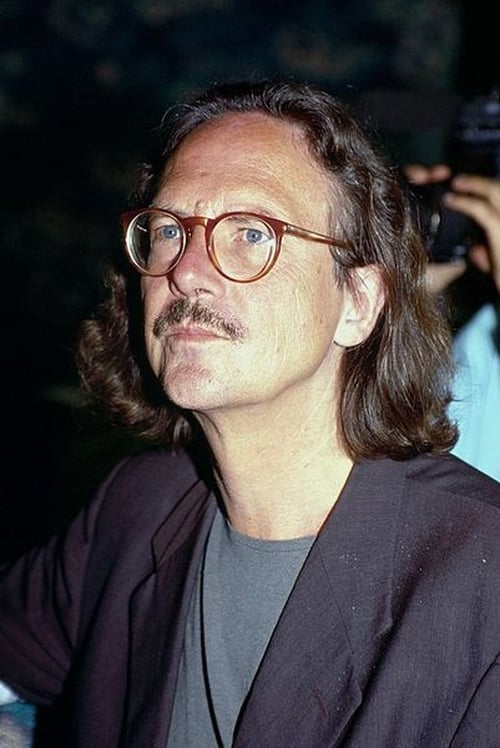Peter Handke
Nascimento : 1942-12-06, Griffen, Austria
História
Peter Handke (born 6 December 1942, in Griffen, Austria) is an avant-garde Austrian novelist, playwright and screenwriter. In 2019, Handke was awarded the Nobel Prize in Literature "for an influential work that with linguistic ingenuity has explored the periphery and the specificity of human experience."
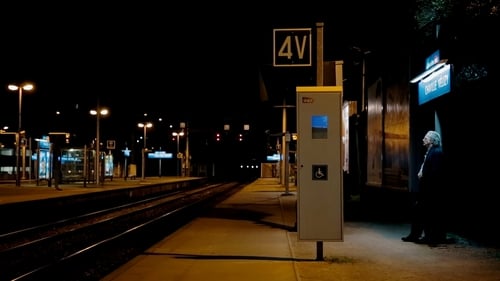
Himself
In the sixties, Peter Handke was one of the first to show how the business works: the writer as angry young man and pop star of the literary scene. As soon as he was on the bestseller lists, he turned his back on the hype. For many years, he has lived and worked in his house in a Parisian suburb, more quietly and more hospitably. Peter Handke's precise, free gaze becomes perceptible in his texts, his conversations, the cosmos of his notebooks.
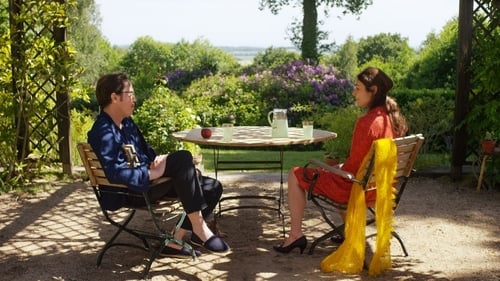
Novel
No norte da França, um escritor (Jens Harzer) começa a escrever os esboços para o seu próximo livro e desenvolve, como ponto de partida, um diálogo entre um homem (Reda Kateb) e uma mulher (Sophie Semin), que se encontram em um jardim suspenso na cidade de Aranjuez, na Espanha, onde discutem, entre outras coisas, questões como sexualidade, amor, infância e também suas memórias e a vida em si.

The Gardener
No norte da França, um escritor (Jens Harzer) começa a escrever os esboços para o seu próximo livro e desenvolve, como ponto de partida, um diálogo entre um homem (Reda Kateb) e uma mulher (Sophie Semin), que se encontram em um jardim suspenso na cidade de Aranjuez, na Espanha, onde discutem, entre outras coisas, questões como sexualidade, amor, infância e também suas memórias e a vida em si.

Self
Bernd Liepold-Mosser returns home to a place bordering the bilingual region of Lower Carinthia to talk to the people there about their “great son” Peter Handke. His search unearths the many unresolved contradictions and ambivalences of a small place where there is repression of the Slovenian-speaking past.

Self (uncredited)
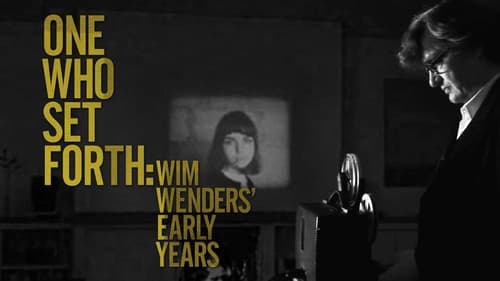
Self
The early films of Wim Wenders are now regarded as landmarks of European film. Alice in the Cities, Wrong Move and Kings of the Road became foundations of the German New Wave and cemented the reputation of their director. In One Who Set Forth: Wim Wenders' Early Years Marcel Wehn explores the background to these films. Through personal recollection and rare home movie footage, it documents the director's early life, from experiments with his first camera, via his deviation from a career in medicine in favour of art and film, through to international recognition for the Road Trilogy. Central to these were themes that became cornerstones of all his work: national identity, the importance of personal relationships and the allure of the road. With contributions from the director and the many collaborators who helped define his vision, One Who Set Forth is a compelling account of Wim Wenders' life and work.

Self
Reencounter with a myth. 40 years since Georg Stefan Troller reported from his adopted home in "Pariser Journal," he returns to his old haunts. A journey through time in a city of contradictions that is always reinventing itself.

Self
This is a documentary about the making of "Wings of Desire" (1987). The director, writer, actors, composer and other contributors speak at length and in detail about how the award-winning film was devised, cast, filmed, scored and edited.
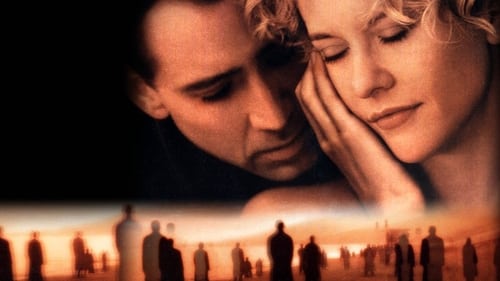
Author
Seth é um anjo que vaga pela Terra consolando aqueles que estão com problemas. Maggie é uma cirurgiã prática e racional que se abala ao perder um paciente, aparentemente, sem motivo algum. No fundo de seu coração, ela sente a presença de algo divino, mas se recusa a acreditar em qualquer coisa que não pode explicar logicamente. Até que a força do destino une Maggie e Seth em um amor poderoso e irresistível. Um amor tão forte que faz com que Seth abra mão da sua imortalidade, enquanto Maggie abre seu coração aos mistérios da vida.
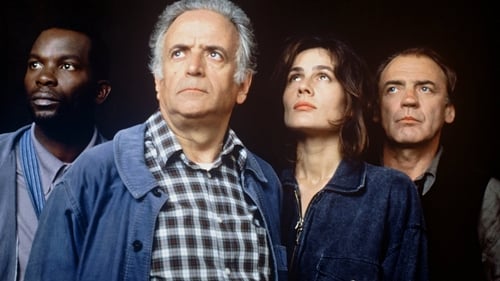
Writer
Four nameless people -- the old man, the woman, the soldier, and the gambler -- journey to a desolate wasteland beyond the limits of an unnamed city.

Novel
Four nameless people -- the old man, the woman, the soldier, and the gambler -- journey to a desolate wasteland beyond the limits of an unnamed city.

Director
Four nameless people -- the old man, the woman, the soldier, and the gambler -- journey to a desolate wasteland beyond the limits of an unnamed city.

Screenplay
Um anjo que observa a cidade dividida de Berlim deseja se tornar um humano mortal quando se apaixona por uma bela trapezista francesa.

Screenplay
In the space of a short 65 minutes, a woman enters the luxury apartment of a wealthy man with an eccentric fascination for the female form and is paid both for her sexual favors and for lying there naked and letting him examine the aesthetics of her body. For most of the hour, as the concise narration of Marguerite Duras' novel on eroticism and aesthetics fills the aural gaps, actress Marie Colbin's form fills the visual gaps. But unless viewers consider the feminine eyeball or microscopic views of skin exotic and worth lingering over, the eroticism lies more in the imagination than on the screen. In fact, the female body lying on the bed, taken away from the spirit that animates it, is really just a corpse -- raising the question, exactly what is the "malady of death?"

the narrator
In the space of a short 65 minutes, a woman enters the luxury apartment of a wealthy man with an eccentric fascination for the female form and is paid both for her sexual favors and for lying there naked and letting him examine the aesthetics of her body. For most of the hour, as the concise narration of Marguerite Duras' novel on eroticism and aesthetics fills the aural gaps, actress Marie Colbin's form fills the visual gaps. But unless viewers consider the feminine eyeball or microscopic views of skin exotic and worth lingering over, the eroticism lies more in the imagination than on the screen. In fact, the female body lying on the bed, taken away from the spirit that animates it, is really just a corpse -- raising the question, exactly what is the "malady of death?"

Director
In the space of a short 65 minutes, a woman enters the luxury apartment of a wealthy man with an eccentric fascination for the female form and is paid both for her sexual favors and for lying there naked and letting him examine the aesthetics of her body. For most of the hour, as the concise narration of Marguerite Duras' novel on eroticism and aesthetics fills the aural gaps, actress Marie Colbin's form fills the visual gaps. But unless viewers consider the feminine eyeball or microscopic views of skin exotic and worth lingering over, the eroticism lies more in the imagination than on the screen. In fact, the female body lying on the bed, taken away from the spirit that animates it, is really just a corpse -- raising the question, exactly what is the "malady of death?"

Novel
A young German man who has just arrived in America, hopes to get over the collapse of his marriage. However, he soon discovers that his ex-wife is pursuing him.
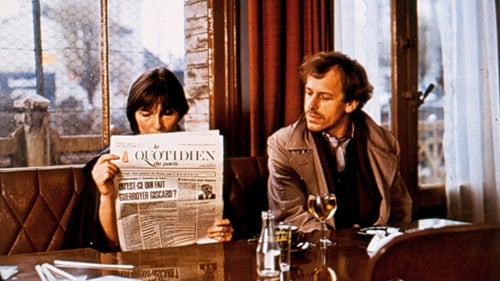
Writer
A viagem solitária de uma mulher após decidir separar-se do marido, ficando sozinha em casa com o seu pequeno filho. O filme descreve a sua redescoberta do mundo, entre o silêncio da solidão e a liberdade de uma nova independência.

Novel
A viagem solitária de uma mulher após decidir separar-se do marido, ficando sozinha em casa com o seu pequeno filho. O filme descreve a sua redescoberta do mundo, entre o silêncio da solidão e a liberdade de uma nova independência.

Director
A viagem solitária de uma mulher após decidir separar-se do marido, ficando sozinha em casa com o seu pequeno filho. O filme descreve a sua redescoberta do mundo, entre o silêncio da solidão e a liberdade de uma nova independência.

Novel
O guarda-redes Josef Bloch é expulso de um jogo após cometer uma falta, num jogo fora de casa. Depois disso, vagueia pela cidade desconhecida, passa a noite com a funcionária de um cinema e estrangula-a na manhã seguinte. Em vez de fugir ou entregar-se à polícia, Bloch refugia-se na casa da ex-namorada, e espera que a polícia venha prendê-lo.

Dialogue
O guarda-redes Josef Bloch é expulso de um jogo após cometer uma falta, num jogo fora de casa. Depois disso, vagueia pela cidade desconhecida, passa a noite com a funcionária de um cinema e estrangula-a na manhã seguinte. Em vez de fugir ou entregar-se à polícia, Bloch refugia-se na casa da ex-namorada, e espera que a polícia venha prendê-lo.
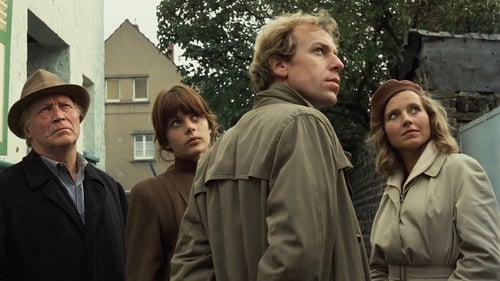
Writer
Baseado em Goethe, o filme descreve seis dias na vida de Wilhelm. No vagão de um trem ele encontra desde um atleta que participou das Olimpíadas de 1936, uma atriz, até interromper o suicídio de um passageiro. Estréia no cinema de Nastassja Kinski.
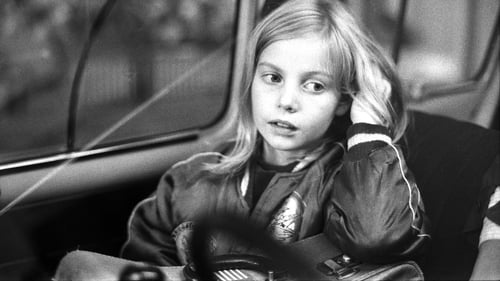
Man at Chuck Berry Concert (uncredited)
Depois de conhecer uma misteriosa americana, o correspondente alemão Phillip aceita com relutância a custódia temporária da pequena Alice. A amizade dos dois cresce enquanto viajam por várias cidades europeias em busca da avó da criança.

Director
About two young men who come to the city in need of new experiences and some action. But life in the city is such that there was nothing left to experience. So the men imagined how one could live. But in the city there were other ideas about life. So begins the story of Philip Spade and Sam Beaumont in the city of San Fernando. The story of a life that we all know, but which never lived up to our expectations: a chronicle of current events.

Another short was 3 American LPs, which was the first film I did with Peter Handke. It was a film about American music, about three pieces of three LPs. There was a song by Van Morrison, another by Harvey Mandel, and one of Credence Clearwater Revival. It was mainly the music and some shots out of a car, landscapes out of the car window. And it had a little bit of commentary – dialogue between Peter and me about American music and about how American rock music was about emotion and images instead of sounds. That is to say, about a kind of phenomenon, that it was in a way a kind of film music, but without a moving picture. It was a 12-minute film and it was never shown. – Wim Wenders

Writer
Another short was 3 American LPs, which was the first film I did with Peter Handke. It was a film about American music, about three pieces of three LPs. There was a song by Van Morrison, another by Harvey Mandel, and one of Credence Clearwater Revival. It was mainly the music and some shots out of a car, landscapes out of the car window. And it had a little bit of commentary – dialogue between Peter and me about American music and about how American rock music was about emotion and images instead of sounds. That is to say, about a kind of phenomenon, that it was in a way a kind of film music, but without a moving picture. It was a 12-minute film and it was never shown. – Wim Wenders

Five young writers from the 'Forum Stadtpark' in Graz who were little-known back then play bizarre characters from their manuscripts, which often appeared in book form much later.

Writer
Four actors analyze the nature of theatre for an hour and then alternately insult the audience and praise its “performance.” TV recording of the premiere at the "Theater am Turm" in Frankfurt/Main.
